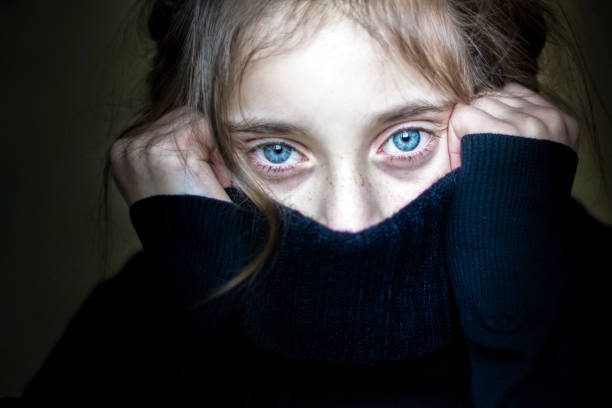This content is for informational and educational purposes only. Always consult a qualified healthcare provider.
Last Updated on July 6, 2025 by Pen Pixel
Let me guess.
You’re still angry and don’t even know why. You’re tired of snapping at people who didn’t deserve it, then hating yourself for it later.
And the worst part?
You don’t even remember what exactly broke you.
But you know it happened. Something did. You just can’t name it without choking.
📋 Table of Contents
The Key Takeaway.
Childhood trauma isn’t just something that “happens to a child.” It’s a blueprint. It quietly builds the way you love, argue, cope, shut down, stay silent, apologize too much, or choose partners who treat you like crap. It’s not just in your past. It’s baked into your nervous system, your relationships, your self-worth, your EVERYTHING.
Trauma.
Trauma is not always that big loud thing people think it is. Sometimes, it’s a silent dinner, it’s the way your mom never said sorry, the face your dad made when you cried, it’s growing up in a house where everyone pretended everything was fine, so you learned to pretend too.
READ: How Trauma & PTSD Affects the Brain.
Let’s stop glamorizing trauma like it needs to come with bruises and police reports before it counts. Because some of the deepest wounds are invisible.
And ignored.
Childhood Trauma.
Okay. Let’s go there.
Imagine you’re five years old, scared, confused, asking for help in the only way you know how and someone calls it “being dramatic.”
Now imagine that happening again and again and again until you stop asking. That’s childhood trauma.
It’s not always what happened.
Sometimes it’s what never happened.
- You were never comforted.
- Never protected.
- Never allowed to be messy or soft or loud.
- And you started shrinking parts of yourself just to survive a world that told you your emotions were “too much.”
So now, as an adult, you say “I’m fine” before you even think about how you feel.
You say sorry for existing weird.
You fall in love with people who make you feel invisible, because that’s what love looked like back then.
Childhood Trauma and It’s Long Term Effects.
Let’s not act like this stuff just “goes away” with age. It doesn’t. If anything, it shapeshifts.
It turns into:
- Chronic people-pleasing.
- Rage you can’t explain.
- Shaky self-esteem.
- Trust issues that make relationships exhausting.
- Overthinking every little thing because your safety once depended on reading the room.
Let me say this louder: Trauma doesn’t just make you sad. It rewires your whole system.
And guess what else it does? It teaches you to gaslight yourself.
You start questioning:
- “Was it really that bad?”
- “Maybe I’m just sensitive.”
- “Other people had it worse.”
- “Maybe I’m making it up.”
NO.
You’re not making it up. You just learned to minimize your own pain because that’s what everyone else did.
- You crave chaos because that’s what home felt like.
- Even now, when someone is kind to you, you don’t know how to take it.
- You flinch when someone raises their voice.
- You feel safest alone not because that’s how much you love peace, but because your nervous system doesn’t trust peace.
Let’s Talk About Anger.
Oh, no. So much anger.
And underneath it? Grief.
- You grieve the childhood you didn’t get.
- The protection you didn’t have.
- The version of you that could’ve been soft and silly and loud without punishment.
You look at people who grew up feeling safe and think, What must that be like?
And it stings. It stings so bad.
Not because you’re bitter, but because your inner child is still sitting in the corner, waiting for someone to say,
“Hey, what happened to you wasn’t fair.”
Let’s Talk About Love.
Love is confusing now, isn’t it?
Because you don’t know how to ask for your needs without guilt.
Because deep down, you believe that if someone really saw you, they’d leave.
- So you settle.
- You perform, and make yourself smaller.
- You attract people who repeat the script, emotionally unavailable, emotionally unstable, emotionally gone.
You think, “I can fix them.”
Because deep down, you wanted to fix the parent who never hugged you, the one who yelled, the one who ignored, the one who only showed up halfway.
You call it “loyalty.”
But it’s trauma reenactment.
Let’s Talk About Your Body.
Yes, because that’s where the trauma lives too.
- You’re always tired.
- You feel unsafe in crowds.
- You dissociate during sex.
- Your shoulders are tense even when nothing’s wrong.
That’s not “being lazy” or “just anxious.”
That’s your body remembering things your mind forgot.
Your nervous system got stuck in survival mode.
You got so used to the alarm that peace now feels suspicious.
Childhood trauma isn’t a chapter. It’s the ink. But you, you’re the author now. Rip out the pages that lied. Write better ones. Messy. Honest. Yours.

